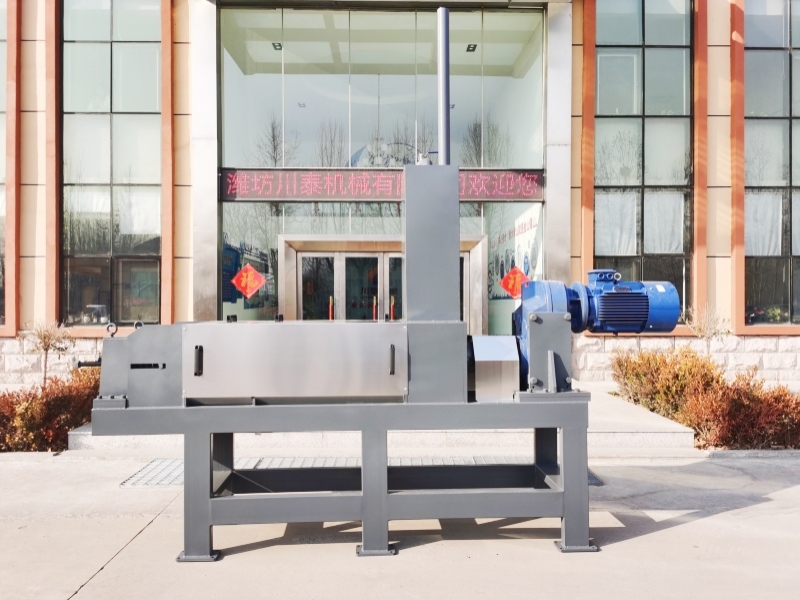
Cow dung, a common byproduct of livestock farming, is rich in organic matter and nutrients, making it a valuable resource for agriculture. However, managing and utilizing cow dung can be challenging due to its high moisture content. To address this issue, cow dung dewatering machines have been developed. In this article, we will explore the principles and applications of these machines.
Principle of Cow Dung Dewatering Machines
Cow dung dewatering machines operate on the principle of mechanical separation and compression to reduce the moisture content of cow dung. The primary components of these machines include a screw conveyor, a screen or perforated cylinder, and a compression chamber. Here's how they work:
Feeding: Fresh cow dung is fed into the machine through a hopper or conveyor.
Mechanical Separation: Inside the machine, a rotating screw conveyor pushes the cow dung towards a perforated cylinder or screen. The screw conveyor exerts pressure on the cow dung, causing the liquid portion to separate from the solid.
Dewatering: As the cow dung moves through the perforations or screen, the liquid fraction (often called "effluent") drains out, leaving behind the solid portion.
Compression: The remaining solid cow dung is further compressed within the compression chamber. This compression squeezes out any remaining moisture.
Collection: The dewatered cow dung, now in a semi-solid or solid form, is discharged from the machine for collection or further processing.
Applications of Cow Dung Dewatering Machines
Agriculture: Dewatered cow dung is an excellent source of organic fertilizer. It is rich in nutrients like nitrogen, phosphorus, and potassium, making it valuable for crop production. The reduced moisture content also makes it easier to handle and transport.
Biogas Production: Dewatered cow dung is a key feedstock for biogas production. Biogas plants use anaerobic digestion to convert organic matter into methane and carbon dioxide. Dewatered cow dung improves the efficiency of biogas production by reducing the water content, which can dilute the biogas yield.
Fuel Briquettes: Dewatered cow dung can be further processed into fuel briquettes, which are used for cooking and heating. These briquettes have a higher energy density than raw cow dung, making them a more efficient and cleaner fuel source.
Environmental Benefits: Proper management of cow dung through dewatering reduces the risk of water pollution. Excess moisture in cow dung can lead to leaching of nutrients and contaminants into groundwater. Dewatering helps mitigate this environmental impact.
Livestock Bedding: In some cases, dewatered cow dung can be used as bedding material for livestock. Its reduced moisture content makes it more comfortable for animals and easier to clean.
Conclusion
Cow dung dewatering machines play a crucial role in converting a challenging agricultural waste product into valuable resources. By separating and reducing the moisture content of cow dung, these machines facilitate the production of organic fertilizer, biogas, fuel briquettes, and more. They also contribute to environmental protection by preventing water pollution. As agriculture and resource management practices evolve, cow dung dewatering machines continue to find new applications and contribute to sustainable farming practices.




If your company wants to establish a business relationship with us, please briefly describe the cooperation intention and send an email to:chuantaiscrewpress@gmail.com























































































![[list:title]](/static/upload/image/20240528/1716877114510915.jpg)